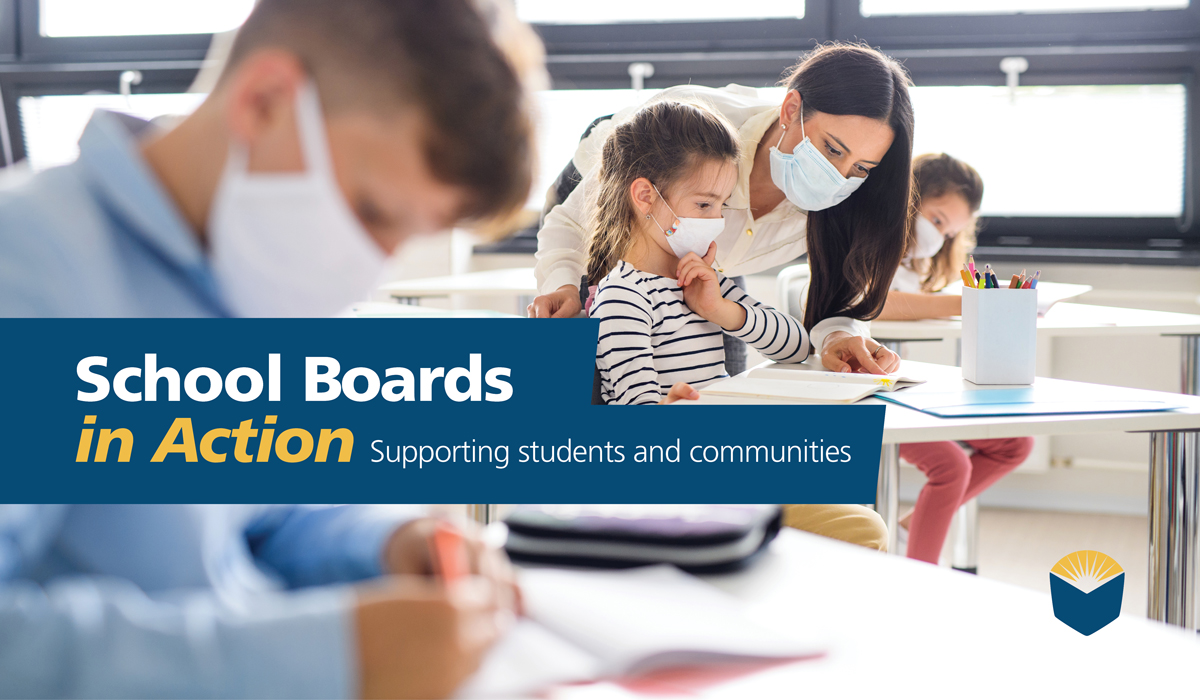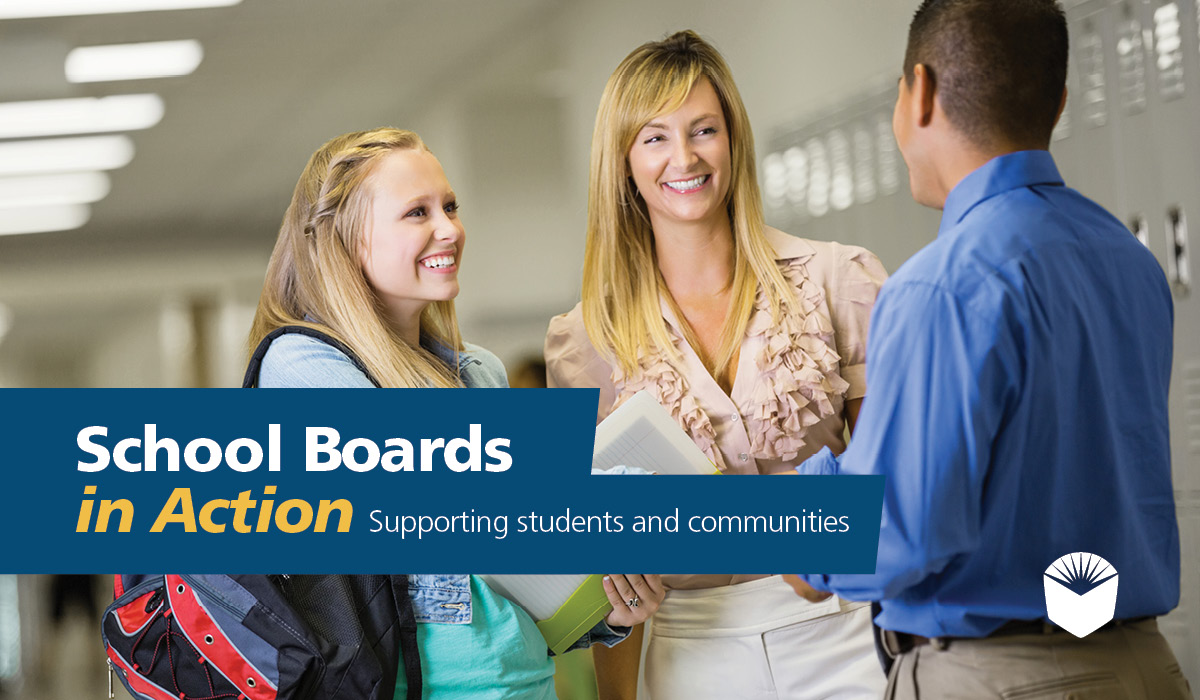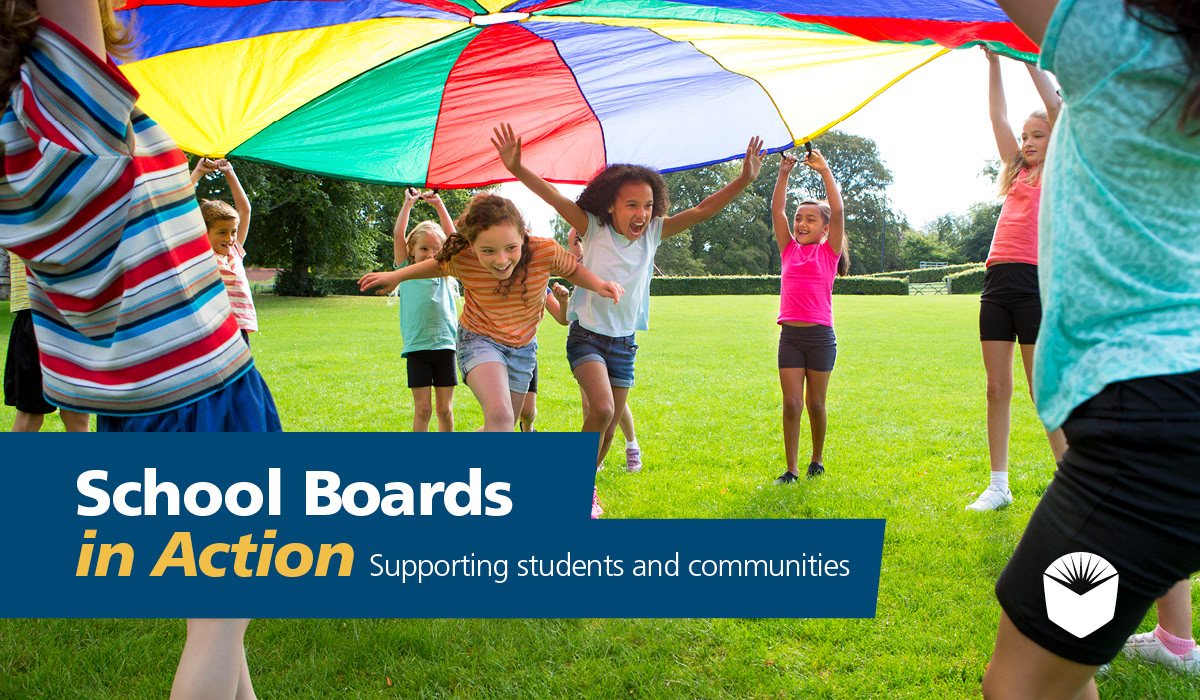This is the second portion of a two part update from Paradise Unified School District’s board president. Read the first part here.
In the midst of a global pandemic, local educational agency boards have continued working to support programs and initiatives that offer students the academic and social-emotional opportunities they need — no matter which mode of instruction they are in. CSBA’s 5 questions series gives board members a chance to share the accomplishments of their LEAs and their experiences during this challenging time in their own words.
Melissa Crick, president, Paradise Unified School District
What is the most successful initiative your board has spearheaded during the pandemic?
An intervention program for our students. It started with student athletes but has grown to all students. Teachers are offering zero- and seventh-period classes (in person or Zoom) for students to come in for help. Attendance is mandatory for athletes with an F in any class. Grades are checked weekly and students with one or more F’s are contacted and encouraged to participate. Also offered is counselling support — we are finding that many students are struggling academically due to mental health concerns. We have many typically high-achieving students that are suddenly struggling to maintain a 2.0 to remain eligible for athletics. Ninety percent of our student body participate in at least one extracurricular activity. We are really working to determine who needs what supports and get the message out that there is help available, no matter the issue.
This came about as a result of AB 908 that allows athletes to play during the pandemic, regardless of grades. Our board wanted to be sure that we were not excluding anyone’s ability to play but also not failing to address the greater concern. In the first semester we had 50 students in need of intervention and 14 in the following. This past grading period we had just two, with many choosing to continue to attend intervention classes despite improving their grades. Some students report that they didn’t need academic help, they were just struggling with accountability and needed someone to check in with them while some expressed significant mental health concerns. We are actively building this program, but the impact is already clear and it is having an immediate effect on the culture on campus. Teachers and coaches are working together, and students are self-advocating. We are all excited to watch as it continues to grow.
What has been your board’s biggest challenge during the pandemic and how are you working to overcome it?
Social-emotional health. I think that every person in our community is likely suffering from some degree of compassion fatigue at this point. We hit the ground running on Nov. 8, 2018, and I don’t know that we have come up for a breath yet. Students, parents, admin, employees — we are all tired. We truly have the most selfless, incredible people in PUSD and they put the students first every day. The reality is that we are all tired and we need a break, but there are so few that will take one. With so much work to be done, it is nearly impossible to find a healthy balance. In many ways, the pandemic is so much harder than the fire because there is so much isolation. After the fire, we got together as often as possible, we were loving each other through it. You couldn’t go anywhere without being hugged by everyone and there was so much encouragement, weekly gatherings and a contagious drive for recovery and rebuilding. Now, during the pandemic, many staff, students and families report feeling alone and discouraged. With no definite end in sight, there is some sense of helplessness. The pandemic has complicated and, in some ways, halted the fire-recovery process. We are trying to be proactive in providing counselling and emotional-wellness resources while building a culture of self-care and encouragement.
What is the biggest misconception you’ve heard about school boards/education during the pandemic?
That they don’t care about students’ education or students as individuals. That we only care about ADA. I have watched my peers, in PUSD and in surrounding districts, break down and shed tears in more than a few meetings. I can see the weight of concern that my colleagues carry, and I see the toll it takes. I wish that more parents could understand just how much their children are loved and cared for. I also wish that there was a better understanding of what the role of a board member is. Most parents seem to think that board members are employed by the district and are often shocked to learn that we are also parents or involved community members that really just want the best for children. While we have made huge strides in building relationships with stakeholders in PUSD, there is still much work to be done and right now parents are angry and grieving. They want their kids back in school and they want to know when things can return to normal.
What are your hopes for the future of your district both short and long term?
Short term, I am very hopeful that our smaller student numbers will allow us to return to full day in-person learning (another silver lining). Our district, maybe more than most, needs to be together. There is so much healing that needs to happen. Both short- and long-term goals include a focus on closing achievement gaps as well as addressing social-emotional wellness. With the fire and the pandemic, there is so much lost learning. We are working towards building programs to meet students where they are.
Mental health is a concern that I feel strongly that districts nationwide should be looking at. At the high school level, we are working on peer programs that encourage students to check in on one another and offering options to speak up anonymously if necessary. We have similar programs for staff and are introducing restorative justice and compassion and empathy-based training at the request of staff as well.
How long have you been on the school board and why are you passionate about your work?
I was elected in December 2016 with the intention of addressing issues that no longer exist in our district. It’s strange how much can change in such a short amount of time. At the time, our district was much larger and clearly lacking representation from the northern half of the district where my children attended school. I have always been the overly involved mom. I started out on PTO and site council and always had a desire to make sure that all voices were represented. PUSD is a unique district both geographically and socioeconomically, even pre-fire. The experiences and needs of families in our upper ridge communities are vastly different than those of the southern portion of our district. I am also very active in the community and had a good understanding of the impact the district has in the lives of the families that it serves. I have three children in the district, who all have had a wonderful experience in PUSD and I wanted to be sure that was the case for all children that access our programs.
What makes me so passionate about the work is the people. The enthusiasm and dedication is contagious and the love for our kids is obvious to all. I take tremendous pride in our team, from our food service that was out delivering meals on the first day of the pandemic lockdown in the snow to transportation who made sure they got those meals to kids and have continued to do so through the pandemic. I appreciate teachers and classified staff who think outside of the box, that go the extra mile to do what works for kids — because they need it. Our admin that gives tirelessly and our superintendent who leads with integrity and purpose. We are so very blessed in Paradise, despite all that has happened. I look eagerly forward to the future of our district and count myself lucky to be a part of the recovery and this team.
Responses have been edited for clarity and length.





